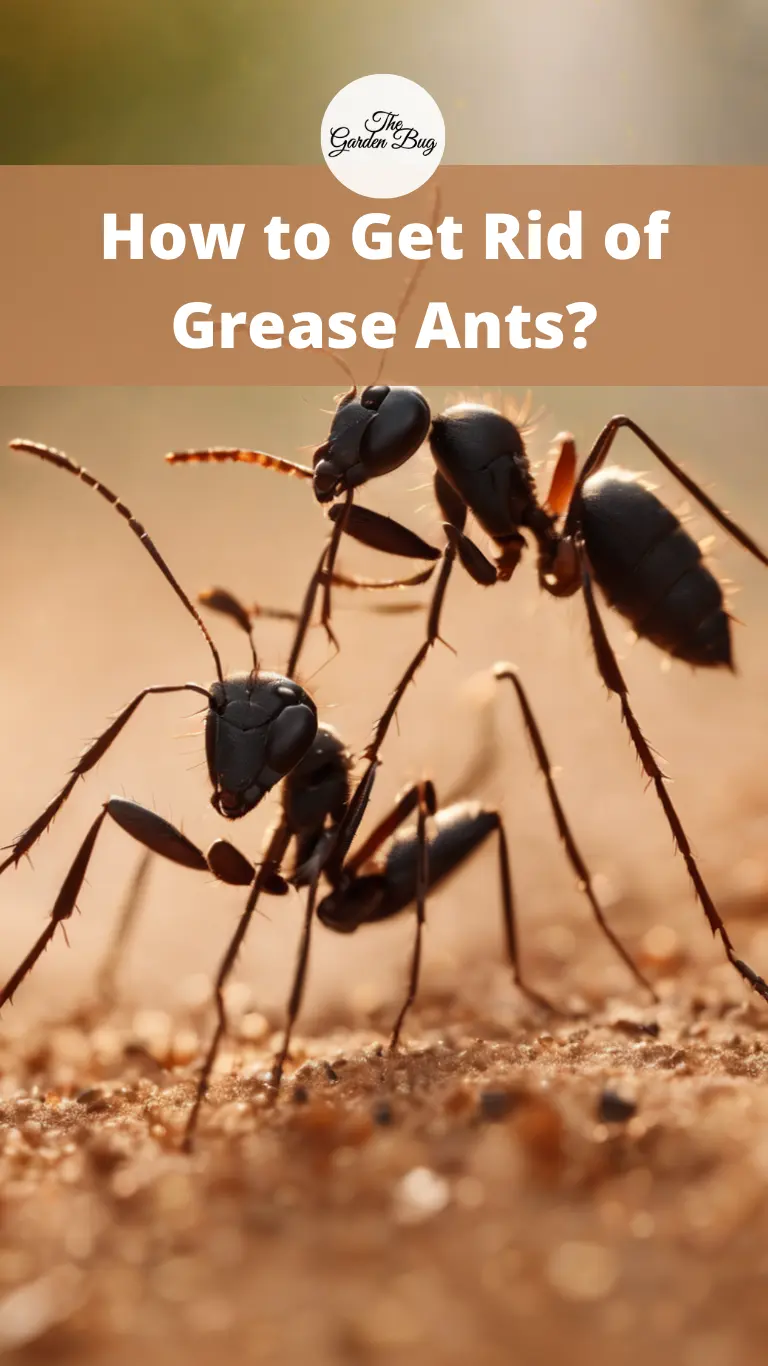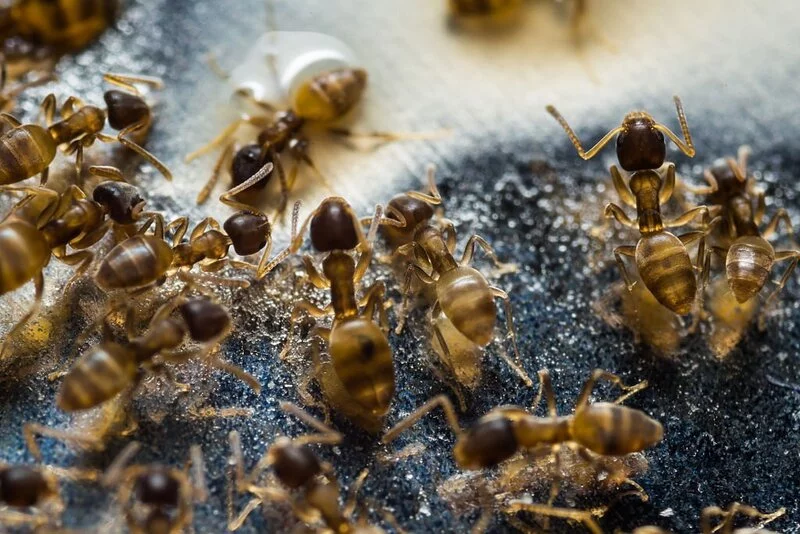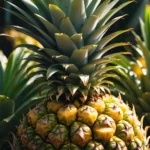Imagine preparing a delicious meal in your kitchen, and you notice tiny intruders marching around in search of food. Grease ants, as their name suggests, have a notorious love for greasy and fatty foods and can become unwelcome guests in your home. These ants are not just a nuisance but can also pose sanitation concerns. If you’re looking to reclaim your kitchen from these tiny invaders, you’ve come to the right place.
- Attracts & Kills – Kills common household ants including acrobat, crazy, ghost, little black, odorous house, pavement, and other sweet-eating ants
- Kills the Ants You See & the Ones You Don’t – As worker ants discover the bait, they share it with the rest of the colony to eliminate them all
- Works Fast – You should see a significant decrease in the number of ants visiting the bait stations within just a few days
- Ready to Use – Place the bait stations, watch it attract ants, and eliminate the entire colony
- Use Throughout Your Home – Place stations near areas where you’ve seen ant activity including along baseboards, in corners, on counters, and more
Identifying Grease Ants
Before we embark on our mission to eliminate these pests, let’s learn how to identify them. Grease ants, also known as thief ants or Solenopsis molesta, are one of the smallest household ants. They are about 1/16 inch long and have a yellow to light brown color.
They typically move in trails and can often be found near sources of fatty or greasy food – hence their name. Grease ants are often confused with pharaoh ants due to their small size, but their preference for grease over sweets distinguishes them.
Understanding Grease Ants Behavior
To effectively get rid of grease ants, understanding their behavior is crucial. These ants are attracted to greasy, high-protein foods. They’ll happily invade your pantry, snack on crumbs, or even enjoy pet food if given a chance.
Grease ants nest indoors and outdoors. Inside, they’re often found behind baseboards, under floors, and even inside wall voids. Outdoors, they nest in soil, under rocks or logs. They have a fascinating social structure, with multiple queens in a single colony, contributing to their rapid reproduction. Their tiny size allows them to access food sources in tight spaces, making them a tricky pest to control.
Armed with this knowledge, we can develop a more effective strategy to bid these ants goodbye!
Home Remedies to Get Rid of Grease Ants
Alright, let’s get to the part you’ve been waiting for—how to give these grease ants their marching orders. Here are some home remedies:
- Bait Stations: Create a homemade bait using a mixture of boric acid and a greasy food like peanut butter. Place this in areas where you’ve seen ant activity. They will carry the bait back to their colony, poisoning it. Be careful, though! Boric acid can be harmful to pets and children.
- Essential Oils: Certain essential oils like peppermint, tea tree, and citrus have been found to deter ants. Mix a few drops with water in a spray bottle and spray around entry points.
- Vinegar: Vinegar disrupts the scent trails ants follow. Mix equal parts of vinegar and water and spray it where you’ve seen ants.
- LUCY’S NATURAL COMPOSITION – Lucy’s White Vinegar’s reputation as a trusted product stems from its safety, effectiveness, versatility, and eco-friendliness. Made from fermented ethanol, it contains acetic acid, a naturally occurring compound. Its formulation excludes harsh compounds, making it safe for use around food and the home. Additionally, white vinegar is biodegradable and does not contribute to environmental pollution, offering a more sustainable cleaning option by reducing reliance on harsh cleaning agents.
- SPICING UP DIPPING SAUCES – Lucy’s White Vinegar can add a tangy kick to dipping sauces. Its acidity helps balance flavors and can enhance the overall taste. For instance, a splash of Lucy’s Vinegar can brighten up a mayonnaise-based dip or give a zesty edge to a mustard sauce.
- SUBSTITUTE FOR SALT OR BUTTERMILK – Lucy’s White Vinegar can be a useful alternative when you’re out of salt or buttermilk. For example, you can use vinegar to add acidity to dishes in place of salt or mix it with milk to create a buttermilk substitute for baking.
- ALL-PURPOSE CLEANER – Lucy’s White Vinegar is a powerful, natural cleaner that can tackle a variety of household tasks. It’s effective at cutting through grease, removing grime, and purifying surfaces. Mix it with water to create a versatile cleaning solution for countertops, floors, and appliances.
- 100% FAMILY OWNED, FOUNDED AND OPERATED – Lucy’s was established in 2003 by Miguel and his wife. They both share 4 wonderful kids who have all worked for the family business since then! Miguel’s family immigrated from Mexico to California and began creating products for the Hispanic market in Los Angeles. Since then, Lucy’s has seen national expansion and began developing state of the art health and wellness products for consumer’s in the United States.
Professional Pest Control for Grease Ants
If the infestation is large or home remedies aren’t doing the trick, it might be time to call in the professionals. Pest control services have access to stronger treatments and can help identify and treat hard-to-reach nesting areas. They will also provide guidance on preventing future infestations.
Preventing Future Grease Ant Infestations
Let’s face it, preventing an infestation is much easier than dealing with one. Here are some tips to keep your home grease-ant-free:
- Keep It Clean: Regularly clean your kitchen surfaces and floors, making sure to remove any grease or food residue. Store food in airtight containers.
- Seal Entry Points: Check for cracks, crevices, or holes through which ants can enter. Seal these with caulk or another suitable material.
- Regular Inspections: Keep an eye out for signs of ant activity, especially during warmer months when ants are most active. Early detection can prevent a full-blown infestation.
Remember, grease ants are not a reflection of your cleanliness. They are opportunistic pests just looking for a meal. By understanding them and taking the right steps, you can keep your home ant-free!
Conclusion
Bidding goodbye to grease ants doesn’t have to be a Herculean task. With the right knowledge about their behavior, some simple home remedies, and a bit of professional help if needed, you can reclaim your home from these tiny intruders. Prevention is the key to keep them from returning. So, stay vigilant, keep your home clean, especially the kitchen, and remember to seal any potential entry points. Happy ant hunting!
FAQs
- Are grease ants harmful? Grease ants don’t bite or sting, but they can contaminate food and are a nuisance.
- Can grease ants damage my house? Unlike carpenter ants, grease ants do not damage the structure of your home, but they can invade in large numbers.
- How long does it take to get rid of grease ants? The time to get rid of ants can vary depending on the size of the infestation and the methods used. It could take anywhere from a few days to a few weeks.






